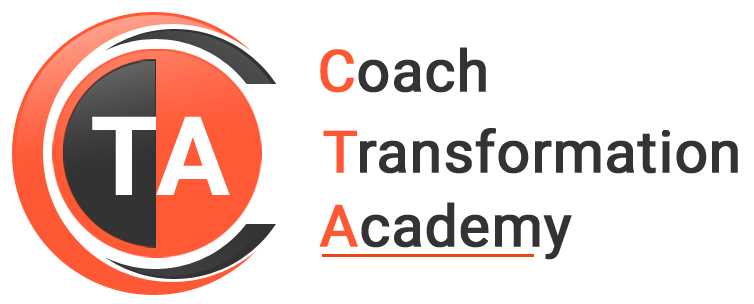
The Thirtysomething Coach, Facilitator, Speaker, & Improviser
Carrie Spaulding is a coach, speaker, facilitator, improviser, educator, nomad, and human. 19 years of professionally performing, teaching, and directing improvisation have empowered Carrie to thrive in each of these identities. Using her distinctively creative, experiential, and outside-the-box approach, Carrie helps individual clients, teams, coaches, leaders, and organizations harness the power of improvisation to be more effective, engaged, collaborative, agile, self-aware, confident, and compassionate in all aspects of work and life.
An acclaimed speaker and session leader, Carrie facilitates growth with warmth, passion, expertise, and humor, and leaves participants armed with improved skills, new tools and strategies, and a feeling that professional development was never this much fun! With her dynamic, engaging spirit, Carrie shows up real and goes deep to empower individuals and groups to achieve their professional and personal goals.
In her private coaching as The Thirtysomething Coach, Carrie helps thirtysomethings break through Thirtysomething Panic and create careers, relationships, and lives they love. A Professional Certified Coach credentialed by the International Coach Federation, Carrie brings a host of tools and a breadth and depth of experience to her practice, and continually draws from her improvisation, performance, and teaching backgrounds to enhance her coaching presence and impact.
In January 2018, Carrie embarked on the ultimate improvisation: a nomadic adventure, living, coaching, speaking, training, and improvising all over the United States. This journey capitalizes on and continues to stretch and hone Carrie’s mastery in creating presence in the midst of disruption, fostering instant connections in a wide variety of settings, spotting and nurturing emergent opportunities, pivoting and adapting to the unexpected, embracing the “not knowing,” and finding home wherever she is.
Keynotes:
Improvisation concepts to help your coaching clients move forward
In the 24th episode of Transformational Tuesday, Carrie Spaulding hit right on the nerve that anybody can relate to, coach or not! The Thirtysomething Coach™, Carrie shared the powerful “YES, AND” theory that can help you personally and professionally to generate options, acceptance to challenges, and reach goals more effectively.
Here are the keynotes from our webinar on “Improvisation concepts to help your coaching clients move forward” with Carrie:
- You don’t have to be a professional improviser or even a novice improviser to learn these concepts and apply them to your work or with clients.
- Tools to bring these concepts into action right away!
- Regardless of what identities we have or what challenges we’re working with, we’re all humans first and foremost. And the skills of improvisation can help us in a huge variety of ways.
A few applications of improvisation concepts:
- Improve your relationships: listen well, build trust, increase self-awareness, sell possibilities in all offers from others.
- Master your inner game – stay present, silence your inner critic, manage vulnerability, release the need for control, feel more confident.
- Enhance your performance – create and perform in the moment, become more adept at thinking on your feet, adapt to and manage change flexibility, access your innate, make the decision more easily.
“Yes, and” will help you and your clients
- Improvisation skills help you to invite your intuition and creativity to interact with yourself and allow you to build onto it.
- Work through (and sometimes quickly dissolve) impediments to actions. The improvisation techniques can help to release blockers quickly and efficiently.
- Discern the difference between real obstacles and things that are getting in the way of taking action and excuses.
- Deal with complexity and the conflicting reality to obtain greater peace and acceptance.
- Stop beating yourself up and develop a more balanced view of yourself.
Basic Principles of Improvisation:
- Principle 1: Say “YES”.
- Principle 2: Get in the game. Adding offers. Add your “AND”.
Terms and Definitions used in Improvisation Principles:
- OFFER: To say yes means to accept all offers. An offer is any information available to us.
- An offer can be verbal, physical, or energetic.
- In improvisation, we can deal with an offer in two ways: Accept or Block.
- ACCEPTANCE means taking in the offer completely as we can and incorporating it as true as part of reality. Block means either to intentionally not take it in.
- As an improviser, when you’re taking in the information that your scene partner has offered and you’re incorporating that into the scene as part of that shared reality.
- When you ignore an offer, pretend not to hear it on purpose or you don’t incorporate it as true. So you take it and push up against it, that’s BLOCKING.
- Blocking breaks trust. And it breaks trust with others and self. There’s really no way to go from there when we just shut down part of the reality.
Types of Offers from Ourselves
We get offers in predominantly three ways:
- When we work in a team, partners, or collaborate with others, it’s often helpful to work on how we get offers from other people and how we respond and accept.
- We also get offers from the environment: that’s non-human, non-animal, or anything in nature or in the news. And they influence us tremendously. We can learn a lot from using “YES AND”, the improv concept with offers from the environment.
- The third kind is the offers we get from ourselves. We constantly get numerous offers from ourselves. And our clients are always getting offers from themselves. And they come in three ways as discussed above.
Correlation to offers:
- Thoughts: Thoughts are often in the form of words. Our thoughts are constantly moving through our heads. Infinite offers are going on within us and it’s almost impossible to take in all offers.
- Somatic experiences: We also take in offers physically. We get offers from our somatic experiences so we might have a sensation.
- Intuition: Our sense, our embodied, gut feeling of what’s happening. We sometimes have a strong intuition about something that we need to do. Or our guts present to us something suddenly.
“Yes” is not…
- What would it mean to say YES to the offers from ourselves?
- Agreement with the offer as a fact. A thought can generate a lot of emotions. Agreement for our purposes for “YES, AND” is not an endorsement as a fact.
- Taking one offer as the whole truth.
- Marching orders.
- Lack of boundaries.
“YES” is…Saying YES to your own offers you get from yourself does mean…
- Making space for the offer – inviting, allowing, and welcoming it as information.
- Incorporating it as a part of reality.
- Accepting the offer as a part of your whole truth.
- Validating the energy, feeling, and experience behind the offer.
Why do we block ourselves
- Often unconscious – we often don’t know that we’re blocking our offers. We don’t do it intentionally.
- To stay safe/avoid the unknown.
- Lack of trust in our instincts or abilities.
- Not wanting to deal with or accept the content of the offer.
- Perceived efficiency, impatience.
- Judgment, shame, and shoulds.
- Pleasing and accommodating others.
Costs of Blocking ourselves
- We stay stuck in a “yes, but…” cycle – takes time in the long run.
- Little action is taken.
- Shuts down creativity, confidence, agency, and empowerment.
- We never deal with the full reality, so problems fester.
- Negative impact on our relationship with ourselves. We stop trusting ourselves to move our life forward.
Benefits of saying “Yes-Anding” ourselves
- Makes room for the whole reality, which allows for resolution, discernment, integrity, and peace.
- For instance, I want to start a business, AND I’m terrified of failing. It makes room for both of those to be true. We change “BUT” which is a blocking word to “AND” which is an accepting word. It makes room for all of that to be true. Then we can discern what we want to do with it, what to do, and we have a greater sense of personal integrity because we know that we’re not hiding from ourselves.
- Enhances ideation, intuition, and creativity.
- Encourages purposeful action.
- Nurtures a better self-relationship.
- Creates a ripple effect/upward spiral in our other relationships.
Cost of Accepting
- Takes time upfront
- Takes courage
- Requires facing and embracing the current reality
- Demands agency/taking responsibility and giving up passivity
- May require letting go of what we feel like is control
How you can hear and recognize blocks in the coaching conversation
- When you hear the word “but”, there’s a 99% chance to be a block.
- When the client brings up an idea, feeling, or thought and quickly blows past it or pushes it out of the way.
- Oftentimes, blocks are invisible. And sometimes you’re not going to hear the offer. When you sense as a coach that a client isn’t fully acknowledging their reality, that there’s something more, or they “should” feel in a certain way or ignoring or bypassing their reality, that’s an indication – that there may be some blocking.
Wisdom O’ Nugget from Carrie:
- “Get over it” is a type of blocking.
- AND-ing does not mean “I resolved everything”. It simply means you took it in and took some action or allowed it to process.
- BLOCKING is not a crime.
- We can take inventory of the offers we’re getting from ourselves without judgment.
- ACCEPTING requires us sometimes to take the risk of the unknown instead of staying in the current situation.
- Use these concepts on yourself and perceive how these concepts can work on your own self. And then move forward with clients.
Rule of Improvisation: We always accept, we never block.
We hope you found our webinar with Carrie Spaulding practical, valuable and insightful!
A big shoutout to Carrie Spaulding for sharing such powerful tips on improvisation that fits well with all aspects of human lives!
Catch up on our conversation with Carrie here where she shared some great improv tools, tips, and insights on how to turn “But” into “And”, quick improv hack, case studies, and a fun Q&A with our participants.
Subscribe to our YouTube Channel to level up your coaching skills and get insights from coaches all around the world.
Stay tuned for the next episodes!




